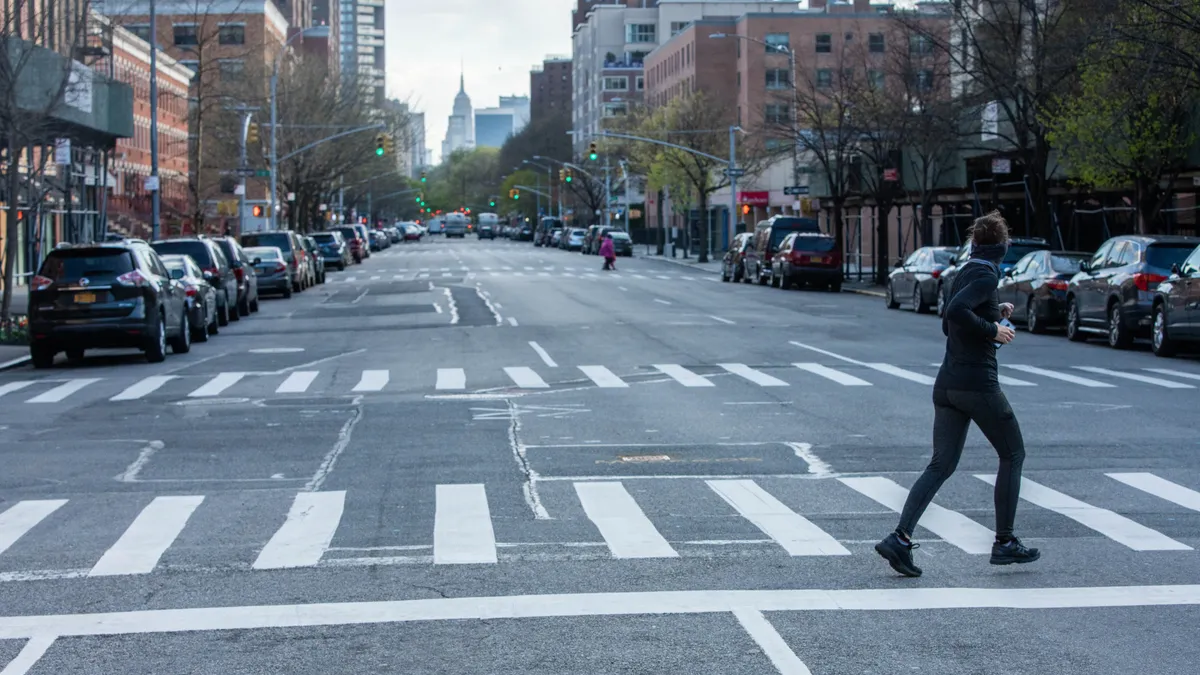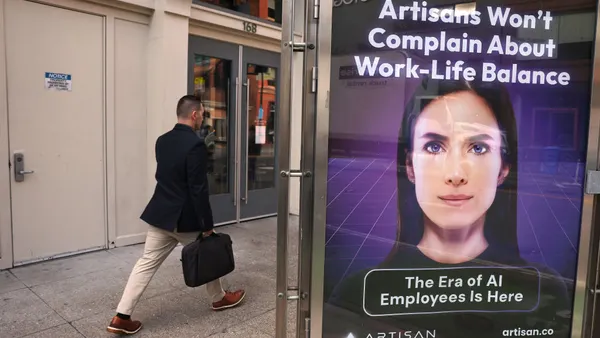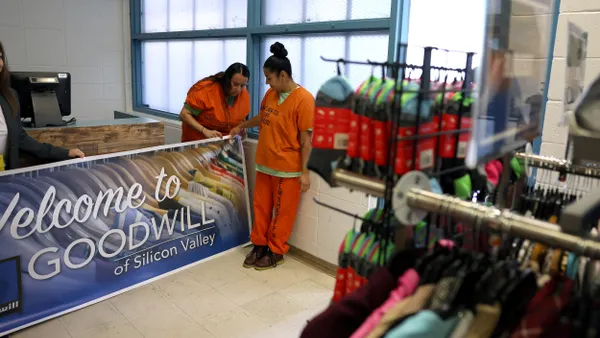Dive Brief:
- Twenty-six percent of organizations have a return-to-work strategy and another 56% are starting to work on their plan, according to a survey of executives, in-house attorneys, and HR professionals from clients of the law firm Blank Rome. The remaining 18% do not have a return-to-work strategy.
- Most companies plan on providing some form of protective equipment to employees once offices reopen, the survey results note, with less than 10% of respondents saying they have no plans of doing so. Fifty-two percent plan to mandate social distancing at work, 27% anticipate staggering return dates and 83% are more open to increasing remote work options. Twelve percent "plan to make substantial reconfigurations of physical workspaces to allow for social distancing"; another 64% plan on some form of medical testing with employees.
- At the time of the survey, 55% of companies had not taken any employee-related cost-cutting measures, such as furloughs, layoffs or pay reductions. In terms of lessons learned, 41% of organizations have learned or realized more clearly the importance of their HR teams. Thirty-six percent said they realized they were unprepared or needed to be better prepared for certain risks that COVID-19 exposed.
Dive Insight:
The Trump administration has released guidance for lifting shutdown orders and is encouraging state governments to determine their course of action. A handful of states, including Florida, Texas and Georgia, are beginning to let non-essential businesses gradually reopen.
Many in the business world are wondering what offices will look like as employees return to work. Major companies are thinking through systems for employee testing and monitoring, including thermal scanning and a wide range of spacing and sanitation precautions, according to multiple surveys and reports. Commercial real estate companies Cushman & Wakefield and WeWork have released their plans for what workplaces of the future may look like.
The U.S. Equal Employment Opportunity Commission (EEOC) has said employers can test for COVID-19 if it is "job related and consistent with business necessity" and also measure body temperature and screen for symptoms, even though that would normally constitute a medical exam and thus an Americans with Disabilities Act violation.
Employers could face many potential liabilities by returning to work under the uncertain conditions surrounding the pandemic. The U.S. Department of Labor's Occupational Safety and Health Administration has released guidance for various industries across the past month and is also compelling workers to report unsafe conditions and any retaliation that may occur.
Gartner has also suggested having a "re-exit plan" if infections occur at work. "Make clear what the triggers and responses will be — and predicate those plans on a continual (re)evaluation of different workplace scenarios," the company wrote in a blog post.
Researchers, working professionals and HR experts seem to agree that virtual work will see a larger role in the near future and post-pandemic world. Organizations that are remote-friendly may also have an advantage in hiring for technical roles, as tech workers in a survey by Hired expressed a growing interest in working from home. Especially because reopening will occur gradually, employers need to be ready to support and enable remote teams at a larger scale than ever before.
Most organizations seem committed to providing protective equipment in the workplace, as well. The Blank and Rome survey results agree with recent findings from Challenger, Gray & Christmas, where 78% of HR leaders surveyed plan to provide masks and/or gloves to all or some employees, or those who ask.











